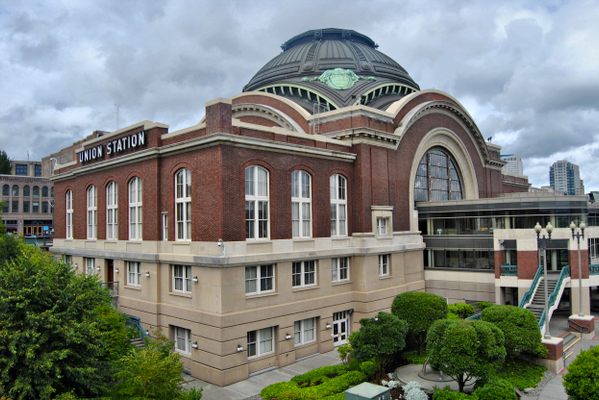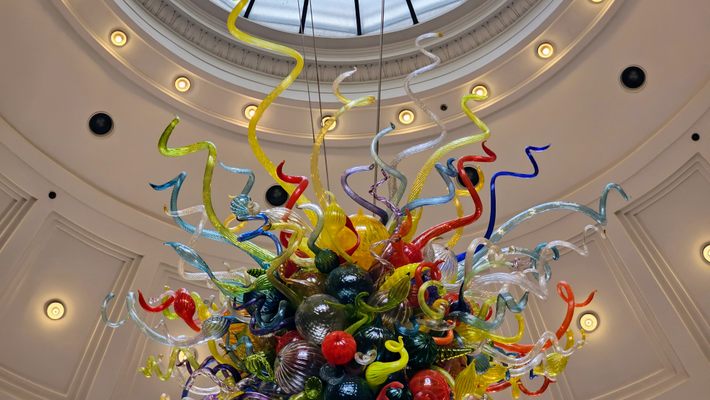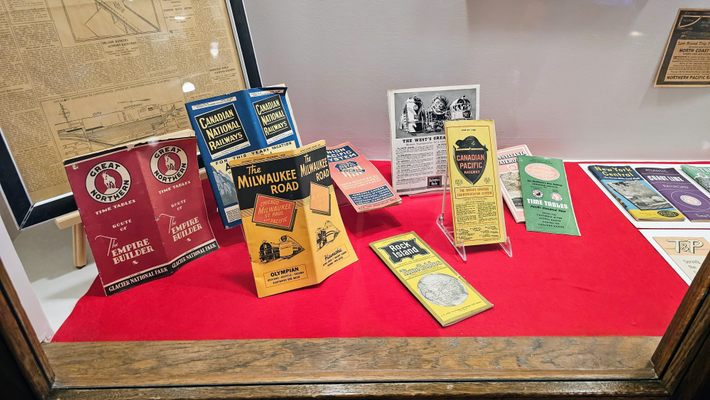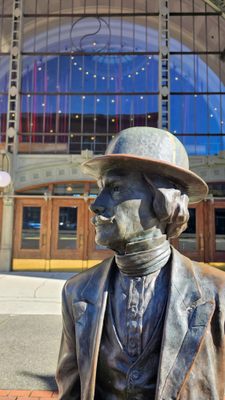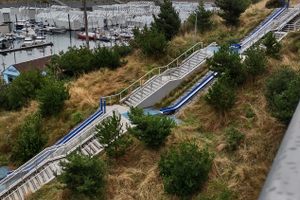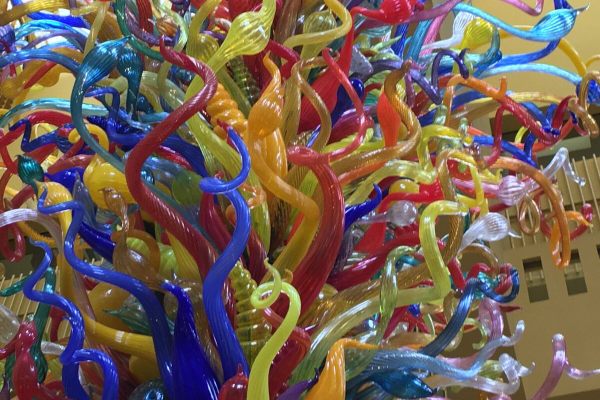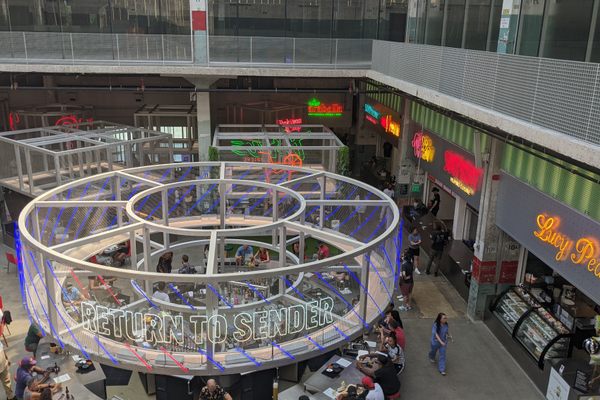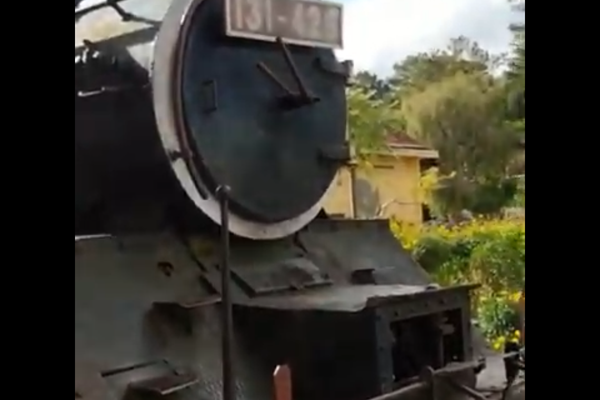About
Once the last stop on a transcontinental journey, Union Station has lived through the rise, fall, and rebirth of Tacoma, Washington. This majestic former train station, once the bustling heart of the city, is now home to some of the greatest glass artworks created by Tacoma-based artist Dale Chihuly.
The story of the station (and much of the story of Tacoma) begins in 1873 when the Northern Pacific Railroad announced the western terminus of its railroad would be located on Commencement Bay. This surprise news shocked the city of Seattle and thrilled Tacoma’s speculators, leading to the city's rapid development.
After the first rush of population, the city outgrew its railroad, leading Northern Pacific to select prolific architects Reed and Stem to design a new Union Station befitting the grandeur of the city and its rail connection. On May 1911, a beautiful Beaux-Arts station with a gleaming copper dome opened to the public, and almost immediately began to leak. It was a sign of what was to come.
Within a generation, the age of rail was over, and so was Tacoma’s time as a prosperous city. The station and city entered a steep decline after World War II. By the 1970s, Amtrak took over and moved national rail service into Seattle, reversing the decision that led to Tacoma’s early growth and leaving Union Station ghostly and decrepit. On June 14, 1984, the last train left Union Station, and the already deteriorating building fell into deeper disrepair.
The station’s second life began soon after, as the U.S. Congress leased the abandoned building to the General Services Administration for use as a federal district courthouse. A major renovation in the 1990s added 10 courtrooms, cleaned up decades of damage, and finally fixed the leaky roof. But while the building was again returned to the public, its full glory was only revealed thanks to internationally renowned artist Dale Chihuly.
Chihuly's art can be seen around town, including at the nearby Bridge of Glass, but Union Station may be the most striking presentation of all. Chihuly and his wife and studio president Leslie Chihuly donated five works to the building, including the 20-foot-long “End of Day” chandelier that acts as the station’s centerpiece.
Hanging from the rotunda, the massive chandelier features thousands of individual glasswork fused together. The walls are decorated with more pieces, including a piece known as “Lackawanna Ikebana,” part of Chihuly’s floral arrangement series, and a breathtaking work resembling monarch butterflies, lit with the sunlight from Foss Waterway.
The once-bustling station now sits mostly empty, except when the court is in session. On the lower floor, display windows can be found with artifacts from Union Station’s history. In the back, hidden from street view, visitors can find one of the 57 replica Liberty Bells issued by the U.S. Treasury to each state and territory in 1950.
The only signs of the building’s former life on the main level are found at the entrance, where a bronze sculpture of a jaunty man in a bowler hat presides. Tacoma’s preeminent historic sculptor, Larry Anderson, sculpted the piece to commemorate the building's railway history. Fresh from a long train ride, the man appears ready to start a new life in Tacoma.
Related Tags
Know Before You Go
Tacoma Union Station is an active government building. It is free and open to the public during weekday business hours except Federal holidays and during events. Check the website for details.
When entering from Pacific Avenue, visitors should announce themselves at security. Make sure to take the stairs or elevator to the second floor and the basement for the additional displays.
Community Contributors
Added By
Published
January 19, 2024
Sources
- https://tomlovesthelibertybell.com/washington-liberty-bell-replica/
- https://www.gsa.gov/about-us/gsa-regions/region-10-northwestarctic/region-10-newsroom/feature-stories/chihuly-gifts-gsa-iconic-tacoma-union-station-art-02012017
- https://www.historylink.org/file/922
- https://gritcitymag.com/2019/07/a-look-at-tacomas-union-station-ca-1970/
- https://historylink.tours/stop/union-station/
- https://www.gsa.gov/real-estate/historic-preservation/explore-historic-buildings/find-a-building/all-historic-buildings/tacoma-union-station-tacoma-wa

